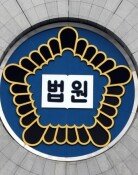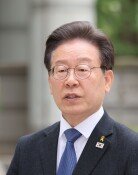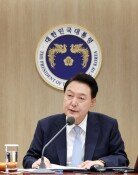‘Vaccine swap’ seems unlikely
‘Vaccine swap’ seems unlikely
Posted April. 23, 2021 07:32,
Updated April. 23, 2021 07:32
U.S. President Joe Biden said on Wednesday that Washington would focus on vaccinating U.S. citizens first as it does not have enough COVID-19 vaccines to send them abroad. His remark came a day after the South Korean government, which is facing a vaccine shortage, suggested the idea of a “vaccine swap” to the United States and is, therefore, seen as a rejection of the offer.
When asked about assisting other nations after delivering a prepared speech announcing a vaccination success, he told reporters, “I’m confident we can help, including in Central America.” The president said, however, “We don’t have enough to be confident to give it — send it abroad now. We want to make sure they’re safe to be sent.”
Some experts suggest that political implications might also be at play. They look at it as an attempt by the United States to pressure or “tame” South Korea that is not part of the Quadrilateral Security Dialogue (QUAD), which the U.S. formed with Japan, Australia and India to keep China in check. Japan secured a promise from Albert Bourla, the CEO of Pfizer, to supply additional 50 million doses the next day Japanese Prime Minister Yoshihide Suga had a summit with U.S. President Biden at the White House.
“U.S. President Biden’s remarks were aimed at U.S. citizens, and he must have considered how serious things are in his country,” said a source from the South Korean presidential office Cheong Wa Dae on Thursday. “We are exploring various options to secure vaccines including vaccine swap arrangements,” said another source.
Experts point out that all possible options should be explored and prepared due to due to the instability of vaccines and a possible resurgence in COVID-19 cases. They suggest paying more for vaccines to accelerate the vaccination program or buying surplus vaccine doses from Israel, which has secured adequate supplies and boasts high vaccination rates.
lightee@donga.com
Headline News
- Israel prepares for retaliation against Iran
- Samsung reclaims top spot, surpassing Apple in smartphone market
- 77% of Koreans in 20s and 30s are 'Kangaroo Tribe' due to job crisis
- KBO referees embroiled in controversy over ABS decision concealment
- Inflation, oil price surge put double shock on global economy







